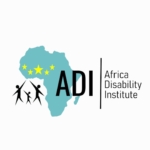
The Africa Disability Institute, (ADI), has welcomed the government’s decision to increase the District Assemblies Common Fund (DACF) allocation for Persons with Disabilities (PWDs) from 3% to 5% in the 2026 National Budget.
ADI, a leading African centre for disability rights research, inclusion policy, and social development advocacy identified the move as a meaningful advancement in strengthening Ghana’s social protection system and enhancing the participation of PWDs in national and local development.
In a communique copied to Myjoyonline.com, ADI lauded the major investments across social services, education, employment, and critical infrastructure outlined in the 2026 National Budget.
It views these commitments as an important opportunity to embed disability inclusion more firmly into Ghana’s development framework.
The Institute commends the government for covering Free Tertiary Education for PWDs in the budget following the introduction of the policy recently, recognising it “as a transformative measure that can expand opportunities for thousands of PWDs.”
The Executive Director, Francis Asong, asserted that the policy will help enhance personal development, strengthen technical and professional skills, and position eligible PWDs to compete effectively for jobs within both the public and private sectors.
“We welcome the government’s commitment to social protection. Indeed, true inclusivity requires intentional and systematic investment in the lives of persons with disabilities. Accessibility, assistive technology, inclusive education, and equitable employment must be at the center of Ghana’s development agenda. The 2026 Budget thus offers a historic opportunity to ensure no Ghanaian is left behind”, he said.
He emphasised that the Free Tertiary Education Policy, together with the increased DACF allocation, has the potential to empower PWDs economically and socially significantly.
“By removing financial barriers to higher education and ensuring better-funded support at the district level, PWDs will be better equipped to access professional pathways, participate in national job-creation initiatives, and contribute meaningfully to Ghana’s economic growth”, he added.
ADI, therefore, praised the government for these commitments, noting that they represent strong progress toward a more inclusive Ghana.
As implementation of the 2026 Budget begins, ADI encourages the Government, Parliament, and the Metropolitan, Municipal and District Assemblies (MMDAs) to take practical steps to maximise the benefits of these policies.
“These include ensuring full accessibility of all new public infrastructure; integrating Braille, audio, and large-print formats into national textbook printing; and allocating part of the MahamaCares Fund and NHIS resources to essential assistive devices and rehabilitation services for PWDs as well as psychotropic medications for people with mental health conditions, and anti-epileptic drugs for persons with epilepsy”, stated the communique.
The Institute further emphasises the need for the introduction of disability-inclusive employment quotas within public works and job-creation programs targeting 800,000 new jobs, as well as stronger disability data systems to support effective planning and service delivery.
ADI reiterates its readiness to collaborate with government agencies, development partners, civil society organisations, and the disability movement to support full implementation of these important policy measures.